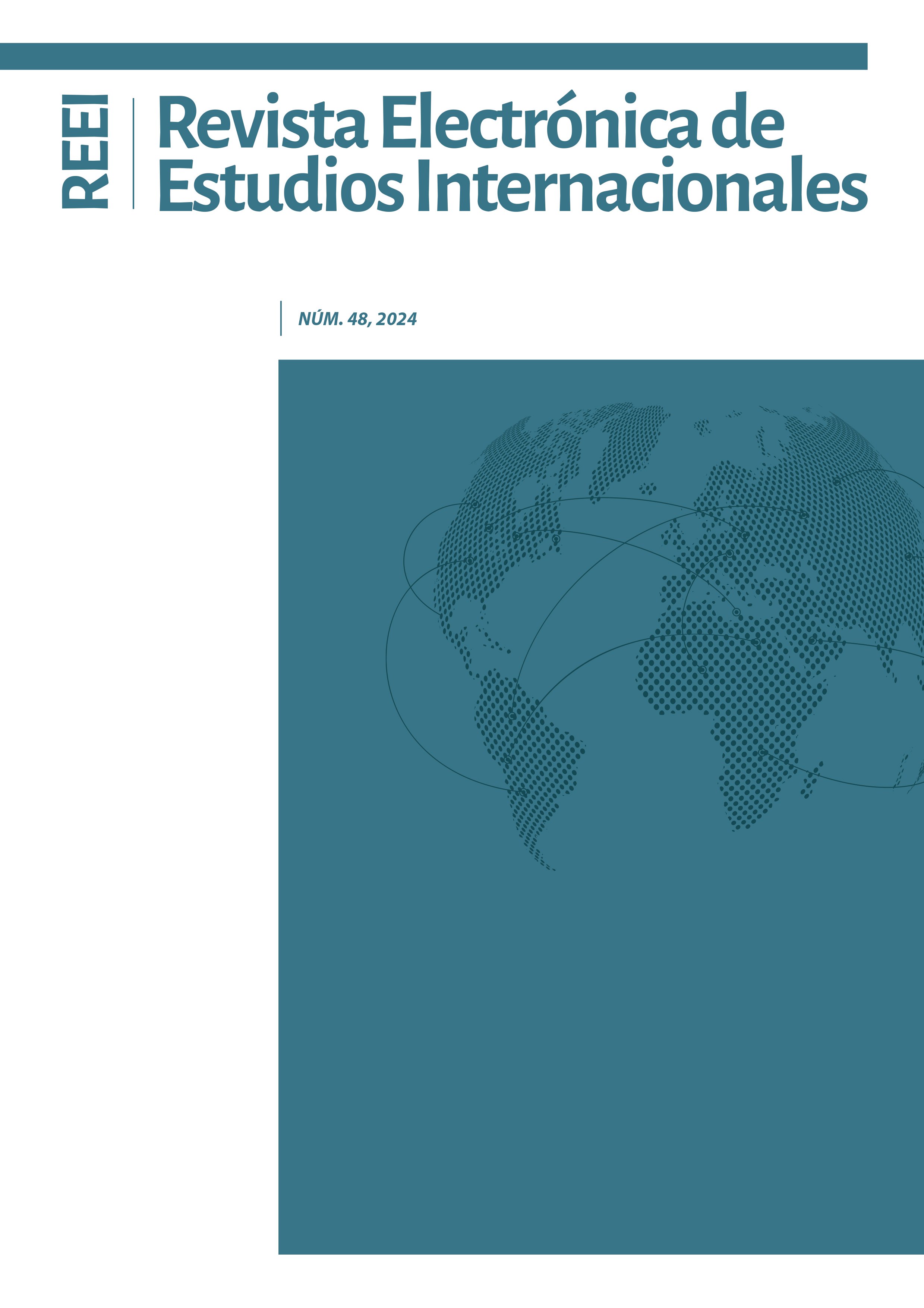La gran estrategia de China en la era de Xi Jinping: factores determinantes y trayectoria
DOI:
https://doi.org/10.36151/reei.48.05Palabras clave:
gran estrategia de China, sueño chino, ajuste estratégico, factores sistémicos y factores domésticos, política exterior china, asertividadResumen
La gran estrategia de “Desarrollo Pacífico” de China ha sido objeto de un ajuste gradual que se evidencia en el cambio de enfoque de la política exterior, transitando de un carácter pragmático a uno más proactivo y asertivo. Este estudio plantea las siguientes preguntas centrales: ¿qué factores han impulsado este ajuste? ¿cómo han interactuado estos factores durante la era de Xi Jinping? ¿hasta qué punto la gran estrategia del “Sueño Chino” representa una ruptura con los principios de la estrategia de “Desarrollo Pacífico”? Para responder a estas cuestiones, el estudio desarrolla un marco analítico de síntesis y multinivel que identifica los factores sistémicos y domésticos que impulsan el ajuste. La investigación adopta una metodología cualitativa basada en el análisis documental y la triangulación de fuentes primarias y secundarias, lo que permite comprender cómo se articulan los “intereses fundamentales” de China y los medios dispuestos para alcanzarlos. Los hallazgos indican que el ajuste de la gran estrategia ha sido impulsado por la retroalimentación de factores sistémicos y domésticos, consolidando un liderazgo más fuerte y una política exterior asertiva. Aunque el “Sueño Chino” marca un cambio en los medios de la gran estrategia, no representa una ruptura con los principios rectores del “Desarrollo Pacífico”, sino una adaptación a las nuevas circunstancias globales y crecientes aspiraciones de poder de China.
Descargas
Descargas
Publicado
Número
Sección
Licencia
Derechos de autor 2024 Revista Electrónica de Estudios Internacionales

Esta obra está bajo una licencia internacional Creative Commons Atribución-NoComercial-SinDerivadas 4.0.




